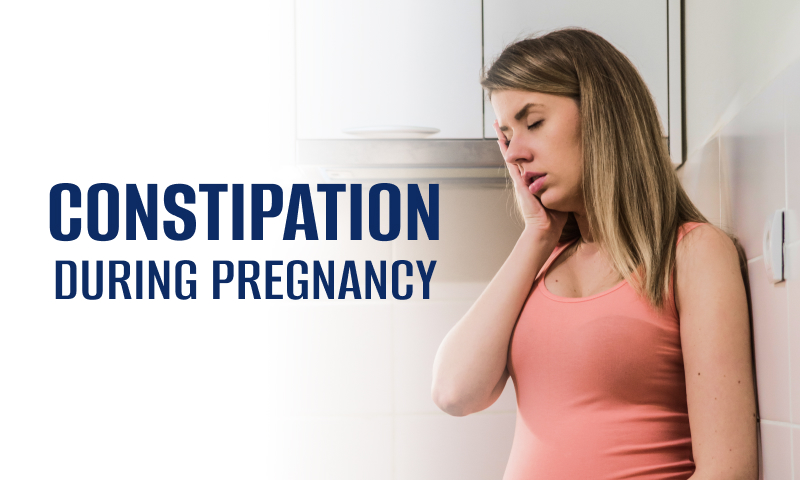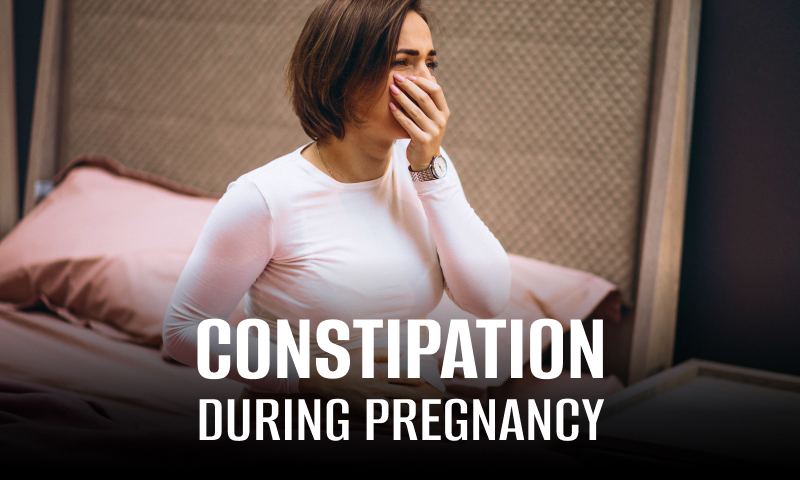Pregnancy is a transformative and miraculous journey for women, marked by physical and hormonal changes. While the experience is unique for each woman, certain discomforts, such as constipation, can be a common occurrence. Constipation during pregnancy is a prevalent concern many expectant mothers face, affecting their overall well-being. This blog aims to delve into the various aspects of constipation in pregnancy, exploring its symptoms, positions to relieve discomfort, and effective ways to find relief.
Introduction
Pregnancy is a profound and transformative phase in a woman’s life, marked by a myriad of physical and hormonal changes that pave the way for the development of a new life. While this miraculous journey is filled with anticipation and joy, it is not without its challenges. Constipation, a mundane yet prevalent concern, often becomes a significant discomfort during pregnancy. The hormonal fluctuations and physiological adaptations that accompany gestation create an environment where constipation can manifest and persist.
One of the primary contributors to constipation during pregnancy is the surge in progesterone levels, a hormone crucial for maintaining a healthy pregnancy. This hormonal increase leads to a relaxation of the smooth muscles, including those in the gastrointestinal tract, causing a slowdown in bowel movements. The expanding uterus exerts pressure on the intestines, further complicating the natural flow of digestion. The amalgamation of these factors can cause symptoms like infrequent bowel movements, difficulty passing stools, and a persistent feeling of fullness. Understanding the nuances of constipation in pregnancy is crucial not only for the physical comfort of the expectant mother but also for the overall well-being of both the mother and the developing fetus.
Causes of Constipation during pregnancy
Constipation during pregnancy is a common concern affecting many expectant mothers, and its origins are multifaceted. The following factors contribute to the occurrence of constipation during this transformative period:
Hormonal Changes
Increased Progesterone: Pregnancy triggers a surge in progesterone levels, a hormone vital for maintaining a healthy pregnancy. However, this hormone also has a relaxing effect on smooth muscles, including those in the gastrointestinal tract. As a result, the normal rhythmic contractions of the intestines may slow down, leading to constipation.
Pressure from the Growing Uterus
Physical Compression: As the uterus expands to accommodate the developing fetus, it exerts pressure on surrounding organs, including the intestines. This pressure can impede the regular movement of stool through the digestive tract, contributing to constipation.
Iron Supplements
Iron-Induced Constipation: Iron supplementation is often recommended during pregnancy to prevent anemia. However, iron has a known side effect of causing constipation by hardening stools. This is relevant, as pregnant women may be more susceptible to constipation because of hormonal and physical changes.
- Changes in Diet and Fluid Intake
- Inadequate Fiber: Pregnancy dietary preferences, aversions, or restrictions may lead to insufficient fiber intake. Fiber is crucial for promoting bowel regularity, and its deficiency can contribute to constipation.
- Dehydration: Insufficient fluid intake can cause hardened stools, making them difficult to pass. Pregnancy increases the body’s need for water, and dehydration can exacerbate constipation.
- Reduced Physical Activity
Limited Exercise:
Pregnancy-related discomfort or misconceptions about exercise during gestation may lead to reduced physical activity. Regular exercise helps stimulate bowel movements, and a sedentary lifestyle can contribute to constipation.
- Psychological Factors
- Stress and Anxiety: Emotional factors, such as stress or anxiety, can influence digestive processes. Pregnant women experiencing heightened stress levels may be more susceptible to constipation.

Symptoms of Constipation during Pregnancy
Constipation during pregnancy manifests through a range of symptoms, affecting the regularity and ease of bowel movements for expectant mothers. It is essential to identify these symptoms in order to provide prompt care and efficient therapy. The following are common indicators of constipation in pregnancy:
Infrequent Bowel Movements
A notable reduction in the frequency of bowel movements compared to the individual’s normal pattern.
Straining during Bowel Movements
Experiencing difficulty or discomfort while attempting to pass stools, often requiring increased effort or prolonged straining.
Hard, Dry Stools
Stools become firm, dry, and difficult to pass. This consistency results from prolonged transit time in the intestines.
Feeling of Incomplete Evacuation
The sensation that bowel movements are incomplete, even after making efforts to pass stools, contributes to a persistent feeling of fullness.
Abdominal Discomfort
Discomfort or pain in the abdominal region is often characterized by cramping or a sense of bloating.
Rectal Bleeding
Straining during bowel movements may lead to minor tears in the rectum, resulting in traces of blood on toilet tissue or in the stool.
Pelvic Discomfort
Pressure or discomfort in the pelvic area, exacerbated by the growing uterus and its impact on surrounding organs.
Increased Flatulence
Experiencing excessive gas production and bloating because of the slowed movement of stool through the intestines.
Back Pain
Discomfort or pain in the lower back may accompany constipation, linked to the pressure exerted by the enlarging uterus on the surrounding structures.
Struggling to Pass Gas
Difficulty in passing gas, contributing to abdominal discomfort and bloating.
Positions to Relieve Constipation in Pregnancy
During pregnancy, adopting specific positions can provide relief from constipation. Pelvic tilts involve rocking the pelvis back and forth while on hands and knees, promoting bowel movement. The knee-to-chest stretch, where one lies on the back and brings the knees to the chest, helps alleviate pressure on the lower abdomen. Squatting, a natural posture for bowel movement facilitation, can be enhanced with the support of a stool. Incorporating these positions into a daily routine aids in reducing discomfort associated with constipation, promoting better digestive function for expectant mothers. Always consult with a healthcare professional before starting any new exercises during pregnancy.
Relief Strategies for Constipation
Relieving constipation during pregnancy involves holistic strategies. Dietary modifications, such as increasing fiber intake through fruits and vegetables, soften stools and encourage regular bowel movements. Hydration helps in maintaining stool consistency. Regular, pregnancy-safe exercises, like walking and prenatal yoga, enhance overall bowel function. Sometimes, healthcare providers may recommend fiber supplements, ensuring proper consultation before use. Balancing fiber, fluids, and physical activity helps alleviate constipation, promoting a more comfortable and healthy pregnancy experience.
- Dietary Modifications
- Regular bowel motions are encouraged when fiber intake is increased through whole grains, fruits, and vegetables.
- Regular Exercise
- Engaging in safe and suitable exercises improves overall bowel function.
- Activities like walking and prenatal yoga can aid in preventing and relieving constipation.
- Fiber Supplements
- Sometimes, healthcare providers may recommend fiber supplements to meet the daily fiber requirements.
- It’s imperative to speak with a medical expert before taking any supplements.
Conclusion
Constipation during pregnancy is a common challenge that many women face, impacting their overall comfort and well-being. Understanding the symptoms and addressing them through proper measures is essential for a healthier pregnancy experience. The exploration of various positions to relieve constipation and effective relief strategies underscores the importance of a holistic approach. By incorporating dietary modifications, engaging in regular exercise, and seeking professional guidance, expectant mothers can navigate constipation with greater ease. By staying informed and taking action, women can make their pregnancy experience better overall.
Also Read – Types Of Prenatal Testing
FAQs
Q: What causes constipation during pregnancy?
Ans: Hormonal changes, pressure from the growing uterus, iron supplements, altered diet, reduced physical activity, and psychological factors contribute to constipation.
Q: What are common symptoms of constipation during pregnancy?
Ans: Infrequent bowel movements, straining, hard stools, feeling of incomplete evacuation, abdominal discomfort, rectal bleeding, pelvic discomfort, increased flatulence, and back pain.
Q: Are there specific positions to relieve constipation during pregnancy?
A: Yes, pelvic tilts, knee-to-chest stretch, and squatting can help alleviate constipation discomfort.
Q: What are relief strategies for constipation during pregnancy?
A: Dietary adjustments (increased fiber, hydration), regular exercise, and consultation with healthcare providers for guidance on supplements.

